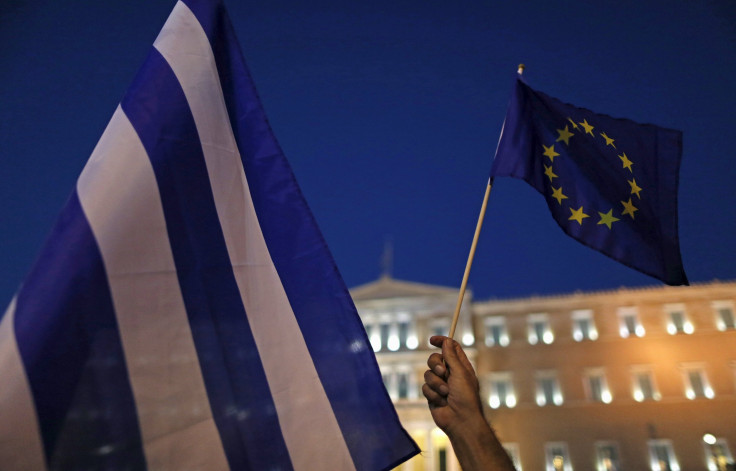Russia Considers Supplying Natural Gas To Greece Amid Continued Economic Turmoil In Athens

Moscow is considering supplying Greece with natural gas via a direct pipeline, Russia’s energy minister said Sunday, adding the priority is to help bring Greece’s economy back from the brink of collapse. The deal, which could be agreed in the coming weeks, according to a Russia Today report, comes as European economic leaders negotiate the terms of a third bailout package for the financially stricken country.
“Russia intends to support the recovery of the Greek economy by increasing cooperation in the energy sector. Therefore, we are looking into options for facilitating direct energy supplies to Greece in the near future," Alexsandr Novak, Russia’s minister for energy, told RT on Sunday.
However, such an agreement, which would cover a pipeline from Russia’s southern border with Georgia through Turkey and into Greece, has alarmed European Union and NATO leaders, who acknowledge that an increasingly warm relationship between Athens and Moscow may undermine ongoing efforts to sanction Russia for its annexation of Crimea in 2014 and its continued involvement in the war in eastern Ukraine. Greece is currently a member of both NATO and the EU.
“There is this new relationship with Moscow and Athens, so there is concern from NATO about how it might evolve in the future,” Thomas Wright, director of the Project on International Order and Strategy at the Brookings Institute, a Washington think tank, told International Business Times Tuesday. “It’s become part of the geopolitical frame around what’s happening in Europe right now.”
Giorgos Tsipras, the head of the Greek Foreign Ministry’s economic relations department, welcomed Russia's interest, calling it “a new beginning for economic relations between Russia and Greece.”
“The new government means that we will have more a multidimensional foreign policy and economic foreign policy, and Russia is one of the countries that we will have more relationships with,” he told RT. In the 1980s and '90s when the Greek socialist Pasok party was in power, Greece and Russia enjoyed warm relations. Those cooled when subsequent conservative governments were in power in Athens.
While Greece has not formally asked for Russian financial assistance as it looks to decrease a national debt totalling more than $380 billion, Russian President Vladimir Putin has said in the past that Russia would do what it could to help. He clarified that a full bailout of the billions Greece owes a "troika" of European creditors would be beyond the current wherewithall of Moscow, which is still reeling from EU-led sanctions and a drop in the price of oil.
“Greece is a member of the EU and is conducting complicated negotiations with its partners. [Greek Prime Minister Alexis] Tsipras didn’t ask us for any help. And in general, it’s understandable because the numbers [of the Greece debt] are high,” Putin said on Friday during the BRICS-SCO summits in the Russian city of Ufa.
U.S. officials have previously called for Greece to reject Russian offers to supply energy, asking Athens to agree, instead, to a Western-backed pipeline from Azerbaijan.
© Copyright IBTimes 2024. All rights reserved.






















